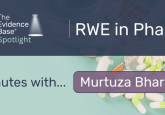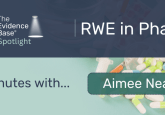Mitsubishi Tanabe Pharma America announces collaboration with ALS/MND Natural History Study Consortium to advance real-world data in amyotrophic lateral sclerosis

In a partnership to collect real-world data (RWD) in amyotrophic lateral sclerosis, Mitsubishi Tanabe Pharma America will use RWD collected by the ALS/MND Natural History Study Consortium to help the company learn more about the demographics, natural history and treatment of people living with amyotrophic lateral sclerosis.
Mitsubishi Tanabe Pharma America (MTPA) has recently issued a press release confirming a partnership with the ALS/MND Natural History Study Consortium. Through the collaboration, the company will access RWD obtained by the Consortium through their multidisciplinary clinic-based registry, which prospectively and longitudinally captures clinical information people with amyotrophic lateral sclerosis (ALS) and other motor neuron disorders. Furthermore, MTPA will be able to access retrospectively collected clinical data from patients who have used its ALS therapies, RADICAVA ORS (edaravone) and RADICAVA (edaravone), dating back to 2015, when the Consortium was founded.
The ALS/MND Natural History Study Consortium has collected data from over 2100 ALS patients from 10 academic medical centers in the US and Italy. The Consortium uses the patient-centric clinical research platform NeuroBANK to capture a wide range of data such as gender, age of symptom onset and clinical milestones.
Alex Sherman, Director of the Center for Innovation and Biomedical Informatics (CIB) at the NCRI at MGH and Principal Investigator for the study explained, “Through this collaboration, MTPA joins the ranks of visionary companies that understand the importance of capturing high-quality RWD that help us to better understand, better diagnose and ultimately find new treatment options for ALS.”
Gustavo A Suarez Zambrano, Vice President of Medical Affairs at MTPA continued, “Access to RWD is critical with complex and difficult-to-treat diseases like ALS. This collaboration will enable us to leverage a comprehensive database of real-world and retrospective clinical trial findings, continuously advancing our scientific understanding of ALS and how to improve care for people living with this disease.”
Want regular updates on the latest real-world evidence news straight to your inbox? Become a member on The Evidence Base® today>>>






